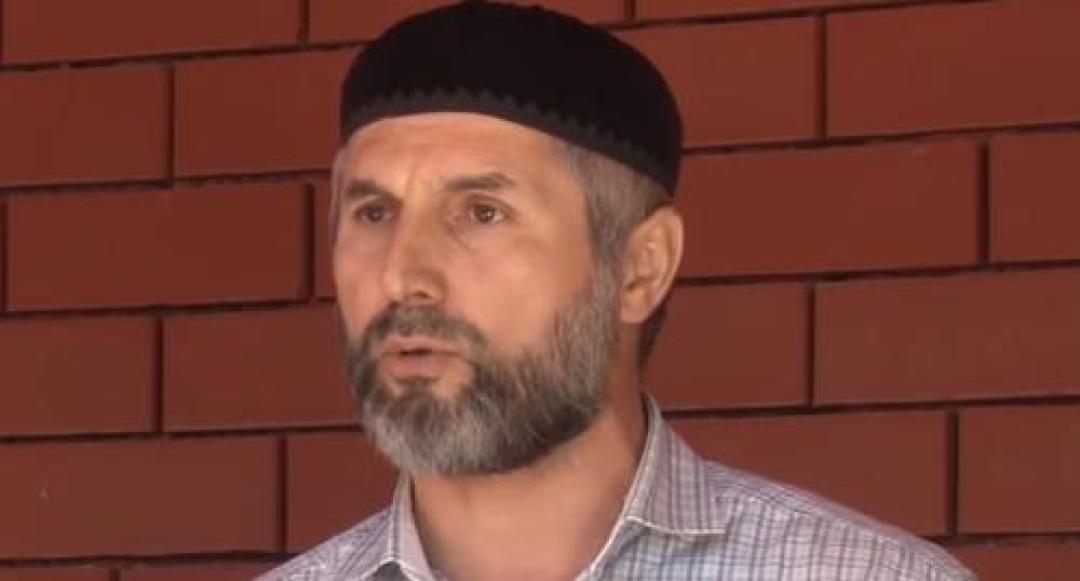
Musa Malsagov urged residents of Ingushetia to fight for their rights

In court, the case of the leaders of the Ingush protest crumbled "like a sandcastle," Musa Malsagov said in his last speech at the trial in Yessentuki. He noted that the activists did not deserve a conviction and appealed to the Ingush people to seek the observance of their rights.
Ingush activists, accused of creating an extremist community, are speaking at the Yessentuki City Court with the last word. All accusations are false, and the case is politically motivated, Akhmed Barakhoev said. There is no real evidence of the defendants' guilt in the case, Ismail Nalgiev pointed out. The defendants’ guilt is that they simply went out to defend their rights and interests, Bagaudin Khautiev noted. In her last speech, Zarifa Sautieva spoke about the pressure from the security forces and about the terrible conditions in the pre-trial detention centre.
The case of the leaders of the protest in Ingushetia, who are accused of creating an extremist community, has been pending in court in the Stavropol Territory since November 2020. On November 8, the debate began and the prosecution asked the court to sentence Akhmed Barakhoev, Musa Malsagov and Malsag Uzhakhov to nine years in prison, and Ismail Nalgiev, Bagaudin Khautiev and Barakh Chemurziev to eight years in prison. For Zarifa Sautiyeva, the prosecutor asked the court for 7.5 years in prison. All the defendants tried to stop the violence and participated in negotiations with the authorities, there is no extremism in these actions, defenders, lawyers, and the defendants said on November 17.
Musa Malsagov was the last to speak at the Yessentuki city court, he said.
During the investigation, some investigators told activists that the case against them was "fabricated," but the investigators were "ordered to keep you as long as possible," Malsagov said. According to the accused, the criminal case fell apart "like a sandcastle" in court. "Our lawyers did not leave a stone unturned (regarding the prosecution’s argument). I am not a lawyer, but even without being a lawyer, one can understand that this is not a criminal case. This [was] wastepaper that the prosecutor's office had to defend," Musa Malsagov said.
He recalled that the case materials contain testimonies of several high-ranking witnesses who said that "the authorities made a strategic mistake (by signing the border agreement)." In the same way, that the authorities made a mistake by not working out this issue with the public. The then-presidential envoy Alexander Matovnikov spoke to the media in the first days of the rally in October 2018, the defendant noted. "Then a fair question arises - why in the dock it was not the officials who plundered the budget and made a strategic mistake, made what happened in the republic ... but we are sitting, who fought for the truth, for justice and demanded that only our rights are respected and Constitution of the Russian Federation?" – Malsagov asked indignantly.
In his opinion, all the cast materials testify to the innocence of the defendants. "We did not commit any illegal actions and did not create any extremist community and did not belong to it," the activist emphasised. "We defended the rights of the people. To demand the protection of rights and at the same time to commit violations would at least be treacherous, not to mention that it contradicts our religious beliefs (Islam)," he added, noting that the conviction would be undeserved.
On March 26, 2019, a large-scale rally argued with the authorities against the border agreement with Chechnya took place in Magas. The protesters did not disperse for the night, and in the morning the security forces tried to disperse them. There were clashes. In early April 2019, mass arrests of activists took place in the republic. According to the Human Rights Centre "Memorial," as of September 27, 40 people were convicted in the "Ingush case." All trials are taking place outside the republic in the Stavropol Territory. The persecution of Ingush activists is being pursued political reasons and is aimed at stopping public criticism of the authorities, human rights activists say.
See Also


Armenia Records 5.9% GDP Growth in 2024, Missing 7% Goal

Yerevan Balances Strategic Ties with Both US and Russia, Says Foreign Minister

FM Mirzoyan: Peace Deal with Azerbaijan Is Within Reach

Pashinyan and Erdogan Hold Call, Reaffirm Commitment to Ongoing Dialogue

